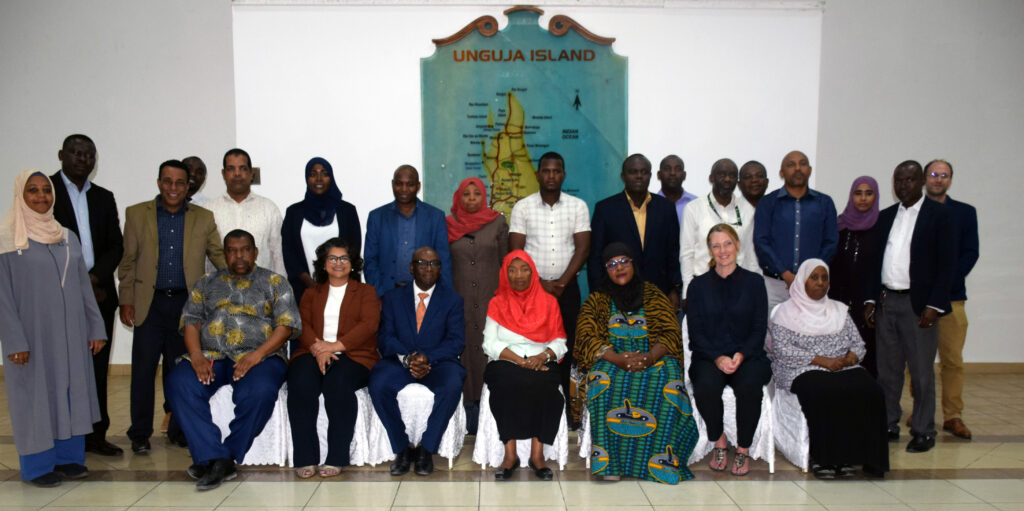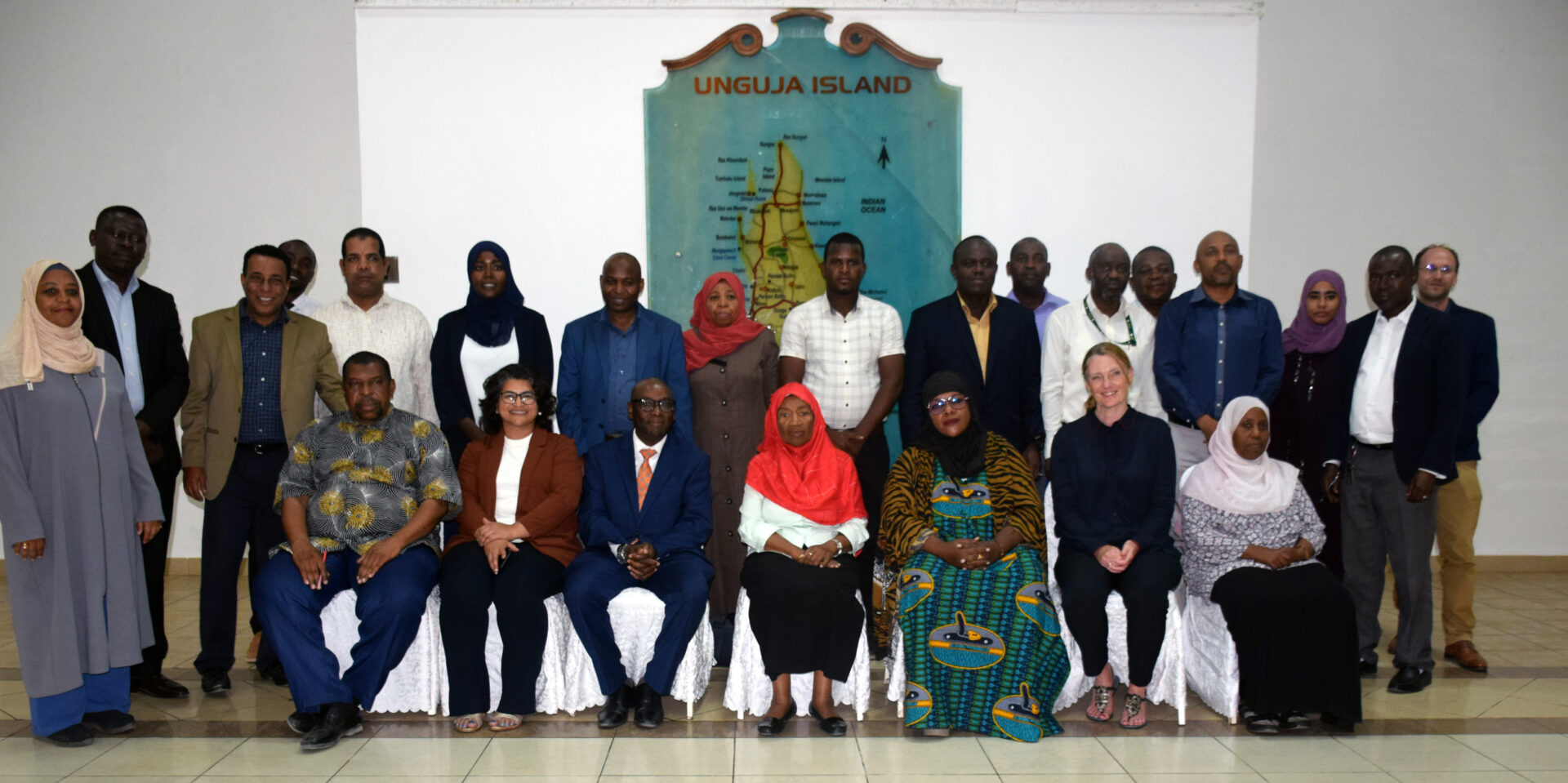On 6 March 2023, high-level delegates from the Ministry of Health in Zanzibar joined ICARS representatives and other local stakeholders to witness the signing ceremony. The Memorandum of Understanding between ICARS and Zanzibar facilitates the kick-off of an antimicrobial stewardship project and lays the foundations for future collaborative initiatives to tackle antimicrobial resistance (AMR).
At the event, Dr Fatma Mrisho, Principal Secretary at the Ministry of Health Zanzibar, expressed her appreciation to ICARS for supporting the Ministry to combat AMR in Zanzibar, and other stakeholders and partners whose “tireless efforts contributed to the development of the stewardship project, Zanzibar especially Health Research Institute(ZAHRI), the Zanzibar Livestock Research Institute (ZALIRI), Health Improvement Project(HIPZ ), the World Health Organization (WHO) and Food and Agriculture Organization of the United Nations (FAO)”
Dr Mayassa Ali, Director General of ZAHRI, spoke about how the Ministry of Health and the Ministry of Agriculture and Livestock, with the support of FAO and WHO, had developed the Multisectoral and Multidisciplinary Zanzibar Action Plan (ZAP) 2019-2023. One of the strategic objectives was to conduct implementation research and surveillance to collect information to inform decision making and reduce AMR. The new collaborative project with ICARS will focus on reducing the threat of AMR in hospital settings, improve care for neonates and children, and reduce unnecessary deaths.
Dr Mirfin Mpundu, ICARS regional lead for Africa, celebrated the signing by speaking about how the Zanzibar project will improve neonatal and childhood outcomes in Zanzibar. He lauded the Zanzibar govt for the already ongoing partnership with ICARS in the animal sector (poultry project with mainland Tanzania), and human health sector (this project) and shared that ICARS will be delighted to pursue other One Health sector partnerships such as environment to truly tackle AMR as a One Health challenge.

About the project: ZAN-TOTO (~ Zanzibar child in Swahili): Zanzibar ANtibiotic Treatment Of Childhood Infections To improve Health Outcomes
The project aims to optimize antibiotic use in a neonates and children (0-12 years) admitted to Mnazi Mmoja Hospital and Chake Chake Hospitals with febrile illness and diarrhoea by achieving a 30% reduction of inappropriate antimicrobial use. By introducing antimicrobial stewardship programmes including use of a Point of Care – C Reactive Protein test as a decision support tool to guide antimicrobial susceptibility testing (AST) in the lab and measuring compliance with the stewardship interventions in two hospitals over three years of implementation. The project aims to develop a standard for future roll-out in all secondary and tertiary hospitals in Zanzibar. The age groups included are neonates (0-28 days) at risk of or with clinical signs of sepsis, and children (29 days to 12 years) with febrile illness and diarrhoea. The project interventions are designed to provide an implementation model for evidence-based AMS activities specifically using the Plan-Do-Study-Act (PDSA) Model.
“The project provides a unique opportunity to tackle antimicrobial resistance by bringing together paediatric and antimicrobial stewardship experts from Global Health Unit (GHU), Rigshospitalet, Denmark and Catholic University of Health and Allied Sciences CUHAS-Bugando, Tanzania to work with hardworking and committed local team. It will contribute to the Ministry of Health-Zanzibar’s vision of building local research and implementation capacities to safeguard children’s health, as well as the protecting the effectiveness of the antibiotics needed to treat life threatening childhood infections.” – Dr Jyoti Joshi, AMR Advisor


